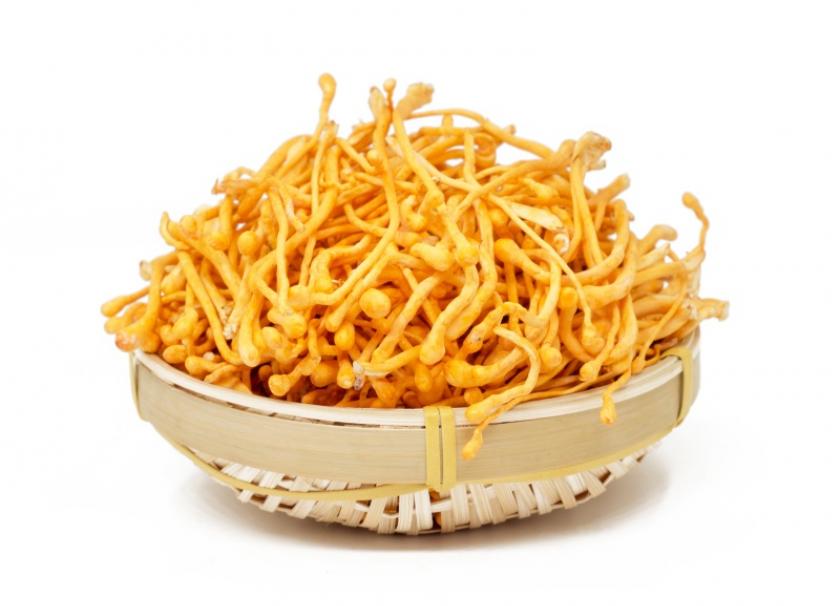
Mushrooms for wellness
You may have heard about the fascinating discovery that trees can communicate with each other. What’s the secret? The mycelia - tiny strands of fungus - in the soil form a vast underground network through which trees send chemical signals to their neighbors.
The mycelia differs from the fruiting body of the mushroom, which is the reproductive component that contains spores and is thought to be higher in Beta Glucans.
If fungus can do that for trees, what benefits can we as humans get from mushrooms? Mushroom teas and other fungal supplements have become more widespread and mostly used for boosting the immune system.*
Lucky for us in the Pacific Northwest, we have access to some of the best mushrooms in the country - in fact, many of the mushroom products we offer are wild-crafted right here in Oregon!
Below is a list of some of the most common medicinal mushrooms and the benefits they may offer to the individual.
As with all supplements, check with your doctor before you start using any medicinal mushroom products. Some mushrooms may have adverse interactions with other medicine, or come with unwanted side effects.
Reishi
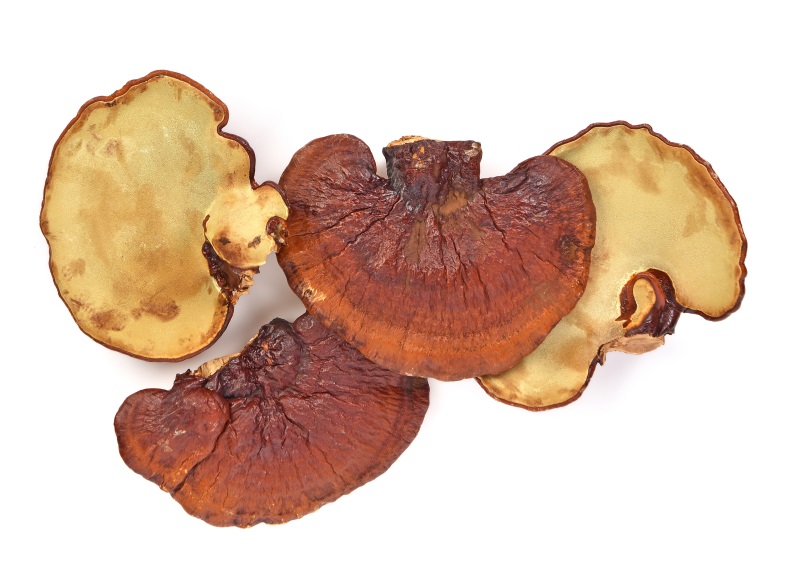
This mushroom has been revered for centuries in Asia. Historically it is a very rare mushroom to find in the wild - scientists estimate that out of every 10,000 trees where reishi could grow, you’ll only find three specimens. Thankfully, the mushroom can now be cultivated on a larger scale using organic substrates.
Generally, reishi is considered an immune system booster and provides overall wellness support*, promoting cardiovascular system health* and the body's ability to adapt to stress*.
Raw or dried reishi can be boiled into a tea. Most reishi supplements come in a tea, tincture or powder (encapsulated or loose) form.
Chaga
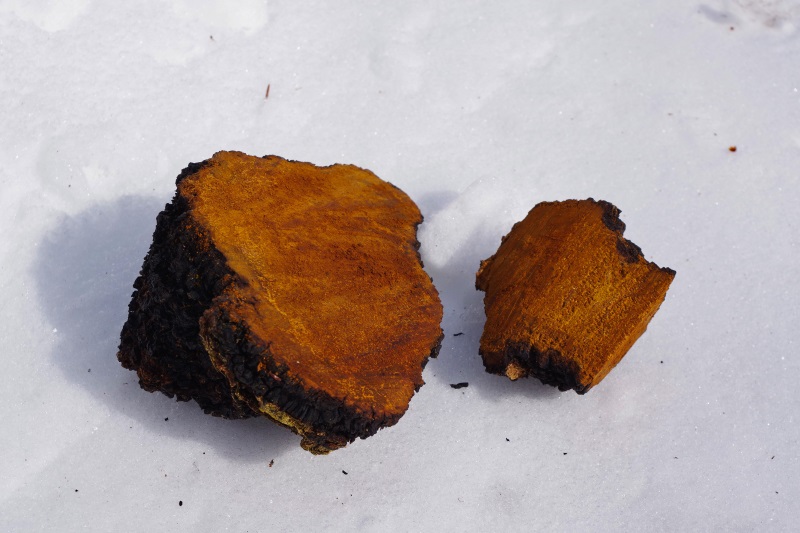
Chaga may not be the most beautiful mushroom on this list, but it has one of the oldest histories. Chaga is mostly found growing on birch trees (which is why it has such a long history in Russia), though it grows on other types of trees, as a big ‘conk’ growth on the outside of the tree. Commercial cultivation of chaga has been successful; however there have been chemical differences observed between wild and cultivated varieties.
Generally, chaga is known to be filled with antioxidants and is an overall immune system booster*.
Chaga is powdered and taken as a tea (the taste is often compared to an earthy coffee), or consumed in a capsule or tincture form.
Cordyceps
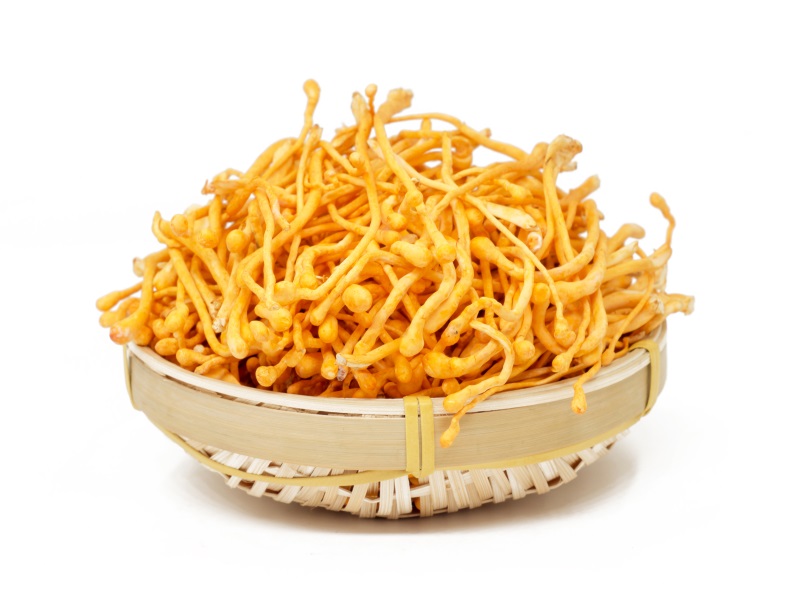
This is the most ‘sci-fi’ of all the mushrooms: several of the 400+ species are actually parasitic. Some modern cordyceps cultivation is a vegan process without needing any living hosts. Cordyceps (Cordyceps militaris) has been traditionally used in Asia for strenuous, high altitude activities and as an immune tonic.* Physical fitness enthusiasts and professional athletes have discovered that cordyceps may have the effect of increased oxygen uptake, supporting higher endurance levels.* People have also found that cordyceps supports healthy libido* and kidney function*.
Cordyceps is consumed traditionally as a raw, dried supplement to soups or stews. In powdered form it is taken as a tea, or in capsules or tincture form.
Lion’s Mane
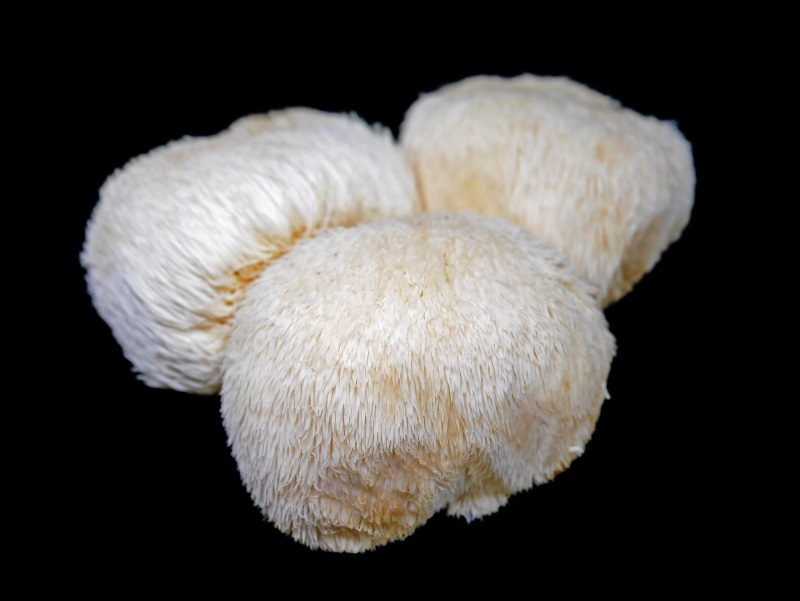
This is one of the most unique looking mushrooms: long tendrils hang from the main fruiting body, creating hundreds of mushroom 'icicles.' This bushy appearance gives the mushroom its common name.
Lion’s mane has been found to be helpful in the following ways: mental clarity, focus and memory in aiding overall cognitive function*; provides immune and nervous system support.*
Lion’s mane is most often consumed as a powder in tea or capsule form, or in a concentrated, standardized extract.
Turkey Tail
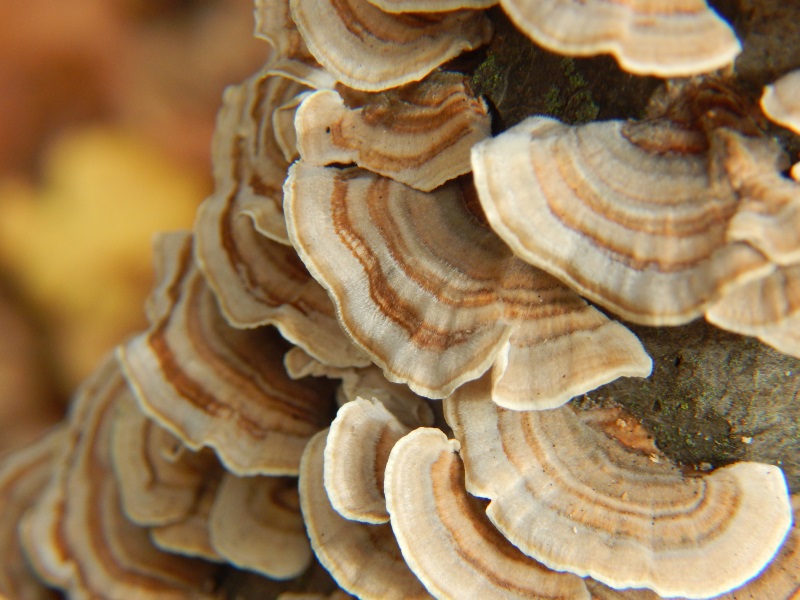
This pretty mushroom is named after the resemblance of the fruiting body to a wild turkey’s tail. Research shows this mushroom has been used medicinally since around 1368 by the Ming Dynasty.
Turkey Tail is an excellent source of cellular nutrients*, providing immune system support.*
Turkey tail is edible but quite chewy; most often it is consumed as a tea, or powdered capsule form.
Other beneficial mushrooms worth exploring:
Maitake
Enokitake
Shiitake
*These statements have not been evaluated by the Food and Drug Administration. This product is not intended to diagnose, treat, cure or prevent any disease.
More Co-op News
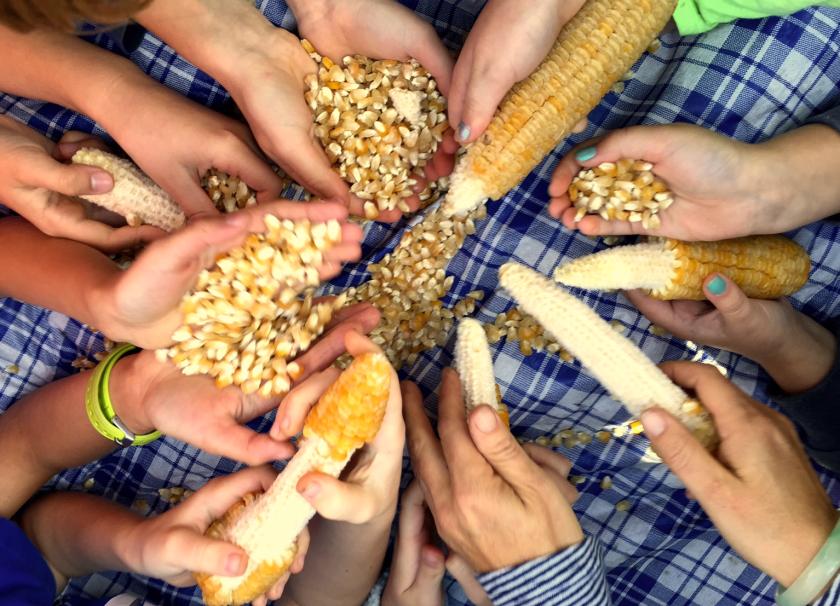
May Change for Good: Our Family Farms
This month, the Ashland Food Co-op is proud to annouce our Change for Good partner, Our Family Farms, an organization dedicated to safeguarding our agricultural heritage and promoting regenerative organic practices.
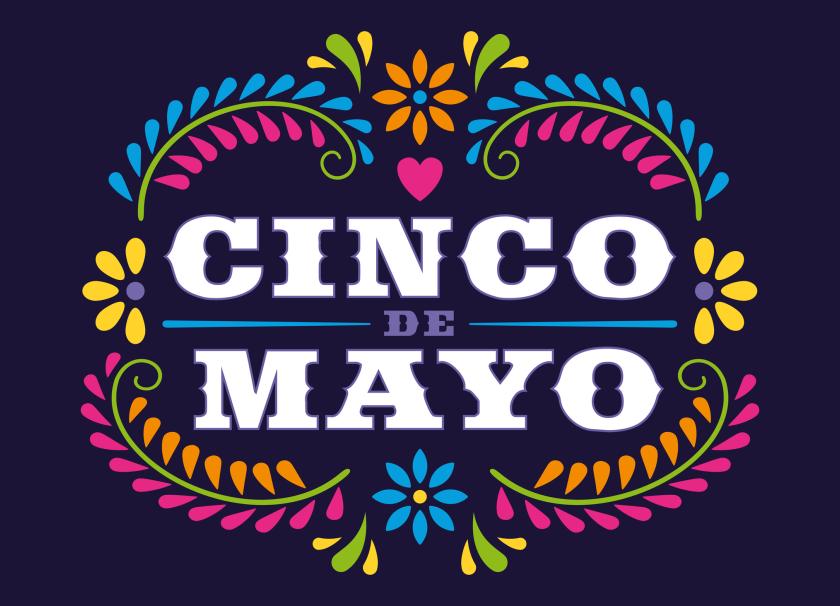
A Closer Look at Cinco de Mayo
Cinco de Mayo has become synonymous with festivities and delicious Mexican cuisine (and who doesn’t love both of those things?). At the Ashland Food Co-op, it's important for us to approach this celebration mindfully and with a cultural understanding.



March Change for Good: KS Wild
As we step into March, we are thrilled to introduce our Change for Good partner – KS Wild, an organization dedicated to preserving the breathtaking landscapes of Southern Oregon. At the heart of our community lies a shared commitment to sustainability and environmental stewardship, making KS Wild the perfect ally in our ongoing quest for positive change.
What is KS Wild?

February Change for Good Partner: Rogue Climate
As we navigate the challenges posed by climate change, it becomes increasingly vital to support organizations dedicated to creating positive environmental impacts. This February, Ashland Food Co-op proudly introduces Rogue Climate as its Change for Good partner. Join us in supporting their mission to empower Southern Oregon communities most affected by climate change.

January Change for Good: AHS Culinary Arts Program
Hey Co-op community!
As we step into the new year, the Ashland Food Co-op is excited to continue our Change for Good program, and for January 2024, we're shining a spotlight on a program that's close to our hearts (and our stomachs) - the Ashland High School Culinary Arts Program.

No Hassle Holiday - Thanksgiving Dinner from the Co-op!
This Thanksgiving, let us take the hassle out of your holiday feast preparation!

November Change for Good: Rogue Food Unites
Say hello to our November Change for Good partner - Rogue Food Unites!
Rogue Food Unites (RFU) uses food to heal individuals and communities during times of crisis. RFU was formed in 2020 out of the dual disasters of the Almeda and Obenchain fires and the impacts of COVID-19 on local communities. Within a short time, RFU began contracting with the State of Oregon to supply hot meals, food boxes, and solidarity cards in Deschutes, Douglas, Klamath, Josephine, and Jackson Counties.

Meet Nick Hardee, AFC's new GM!
The Co-op Board of Directors and staff are thrilled to welcome Nick Hardee as the new General Manager of the Ashland Food Co-op! We asked Nick to share a little bit about himself so we'll get right to it!

October Change for Good: Center for Non-Profit Legal Services
This October, the Ashland Food Co-op is proud to partner with the Center for Non-Profit Legal Services (CNPLS) for our Change for Good program. All month long, shoppers can round up their purchases to support CNPLS and their mission to provide access to justice.
CNPLS is a non-profit legal aid firm serving low-income and vulnerable community members in Ashland and surrounding areas. Their team of dedicated lawyers and volunteers work to ensure everyone has access to legal help, regardless of their ability to pay.

It's Co-op Month!
OK, you've got us, every month is Co-op Month here at AFC! But every October since 1964, cooperatives of all kinds have celebrated the cooperative difference. Here at the Ashland Food Co-op, we're excited to recognize the history, benefits, and principles behind our own co-op.

September Change for Good: AFC Community Fund
As we enter the beautiful month of September here in Southern Oregon, we're excited to share that our Change for Good partner this month is our very own Community Fund. As many of you know, the Community Fund allows us to support amazing local projects and organizations doing great work right here in Southern Oregon.

August Change for Good - Partnering with ACCESS to Make a Difference!
We are honored to partner with ACCESS this August - a fantastic organization that has been serving our community for over four decades. ACCESS, which stands for "A Community in Action, Connecting, Empowering, and Strengthening Self-Sufficiency," is dedicated to addressing hunger, homelessness, and poverty in Southern Oregon.

Empowering Our Community: AFC's Community Grants Now Accepting Applications
As part of our ongoing commitment to supporting the local community, AFC is thrilled to announce the that we are accepting applications for our Community Grants program.
Ashland Food Co-op's Community Grants program is designed to foster meaningful change in the Southern Oregon region. Through these grants, we seek to support projects that align with our mission of promoting local and sustainable food systems, addressing food insecurity, and promoting community engagement.
